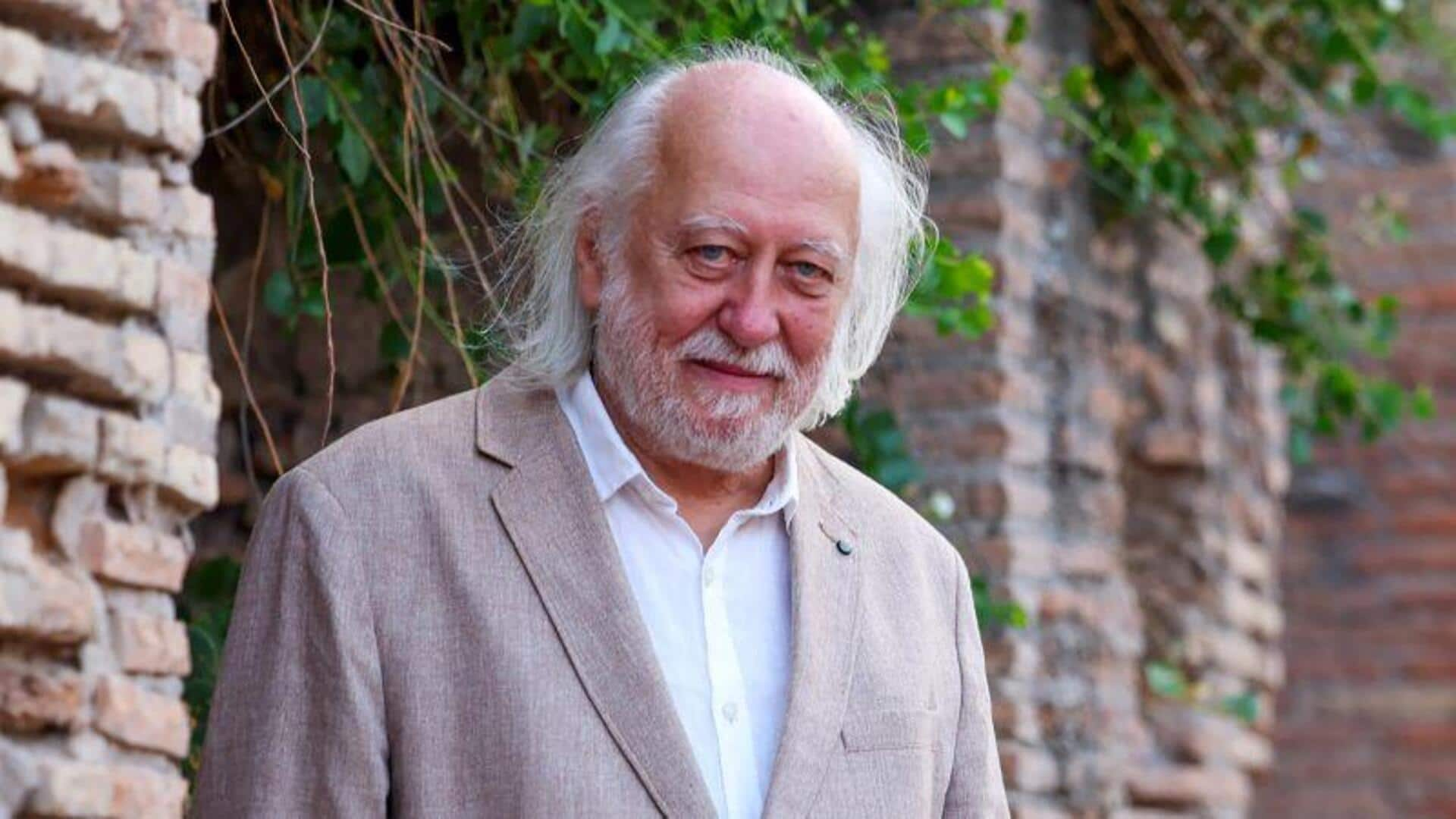
Hungarian author László Krasznahorkai wins 2025 Nobel Prize in Literature
What's the story
Hungarian author László Krasznahorkai has won the 2025 Nobel Prize in Literature. He won the prize "for his compelling and visionary oeuvre that, in the midst of apocalyptic terror, reaffirms the power of art." Last year, the coveted prize was won by South Korean author Han Kang for her "intense poetic prose that confronts historical traumas and exposes the fragility of human life." Between 1901 and 2024, the Nobel Prize in Literature was awarded 117 times to 121 Nobel laureates.
Who is
Great epic writer in the Central European tradition
Krasznahorkai was born in 1954 in the little town of Gyula, in southeast Hungary, close to the Romanian border. Krasznahorkai's debut novel, 'Sátántangó,' published in 1985 and set in a similar distant rural setting, became a literary phenomenon in Hungary and the author's breakout work. The Nobel Prize page describes him as a "great epic writer in the Central European tradition that extends through Kafka to Thomas Bernhard and is characterized by absurdism and grotesque excess."
Prizes
Won many prizes
His dystopian, melancholic novels have won him numerous prizes, including the 2019 National Book Award for translated literature and the 2015 Man Booker International Prize. Several of his novels, notably Sátántangó and The Melancholy of Resistance, have been made into feature films. Herscht 07769, first published in 2021, has been described as a remarkable contemporary German novel due to its accuracy in depicting the country's societal instability.
Twitter Post
More on Krasznahorkai's literary world
The 2025 #NobelPrize laureate in literature László Krasznahorkai also looks to the East in adopting a more contemplative, finely calibrated tone. The result is a string of works inspired by the deep-seated impressions left by his journeys to China and Japan.
— The Nobel Prize (@NobelPrize) October 9, 2025
About the search for… pic.twitter.com/TpXMQZdAR7
Announcement schedule
Schedule for the rest of the prizes
The prestigious awards, established by Swedish chemist Alfred Nobel in the 19th century, honor remarkable contributions in medicine, physics, chemistry, literature, economics, and peace. The winners will join a distinguished list of laureates, including Albert Einstein and Mother Teresa. Each prize carries an award of 11 million Swedish kronor (nearly $1.2 million), along with an 18-carat gold medal and diploma for winners. The awards will be handed out on December 10 on the anniversary of Nobel's death.
Prizes
Nobel Prize winners so far
This year, the winners of the Nobel Prize in Physics were John Clarke, Michel H Devoret, and John M Martinis "for the discovery of macroscopic quantum mechanical tunneling and energy quantization in an electric circuit." The winners of the Nobel Prize in Chemistry were Susumu Kitagawa, Richard Robson, and Omar M Yaghi "for the development of metal-organic frameworks." Mary E Brunkow, Fred Ramsdell, Shimon Sakaguchi won the Nobel Prize in Physiology or Medicine for "their discoveries concerning peripheral immune tolerance."